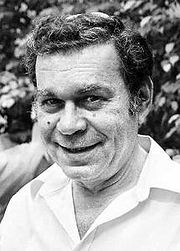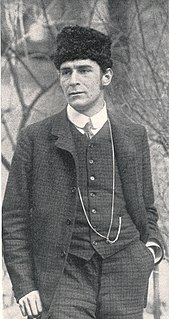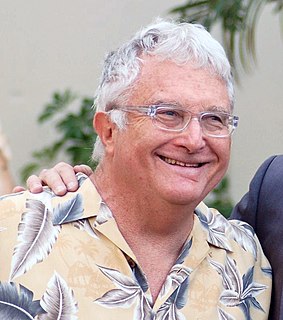A Quote by Brendan Iribe
Essentially, we're always trying to reduce latency. As you try to reduce the latency of the experience, you can only get it down so far before we start running into the limitations of game engines, computing, the intensity of the experience you're trying to compute.
Related Quotes
Most of the network related programming in games has to do with providing a good interactive experience when playing over the internet. This matter is very different from serving web pages. The primary concern there is to handle connection latency, latency fluctuations, packet loss and bandwidth limitations, and pretty much hide all of that from the player's experience.
I say that creeds, dogmas, and theologies are inventions of the mind. It is the nature of the mind to make sense out of experience, to reduce the conglomerates of experience to units of comprehension which we call principles, or ideologies, or concepts. Religious experience is dynamic, fluid, effervescent, yeasty. But the mind can't handle these so it has to imprison religious experience in some way, get it bottled up. Then, when the experience quiets down, the mind draws a bead on it and extracts concepts, notions, dogmas, so that religious experience can make sense to the mind.
Oculus really started popularizing a new approach using cellphone screen technology, a wide field of view, and super-low-latency sensor tracking. It's not crappy stuff that doesn't work and makes everybody sick. When you experience Oculus technology, it's like getting religion on contact. People that try it walk out a believer.
So much of what I am doing in my fiction is just trying to get into interesting places in terms of language or form, places that don't bore me. And this happens via hundreds of quick micro-decisions that are done "to taste," so to speak. So the experience is one of groping toward that interesting place - trying to leap away from anything that seems boring, or about which I don't have strong opinions. Essentially trying to avoid that moment where, devoid of any strong feeling, I start conceptualizing.
[W]hen you're shooting a doc, you're trying to class it up because you can. You know, you're trying to make this feel like cinematic experience. And when you're doing fiction you're trying to do the opposite thing you're trying to take this very artificial experience this very artificial experience and make it feel real and visceral.
I learned in America a long time ago, the three R's, the principle of three R's - reuse, reduce, recycle. And as I say those words, there are so many things individually we can do to reduce - we don't need to consume as much as we are consuming. Reduce. And by reusing, we can reuse a lot of things we just throw into the dumpsite. And reduce the production. The more we reuse, the more we can reduce.
If we reduce batch sizes by half, we also reduce by half the time it will take to process a batch. That means we reduce queue and wait by half as well. Reduce those by half, and we reduce by about half the total time parts spend in the plant. Reduce the time parts spend in the plant and our total lead time condenses. And with faster turn-around on orders, customers get their orders faster.
I am trying to intensify my feeling for the organic rhythm in all things, trying to establish a pantheistic contact with the tremor and flow of blood in nature, in animals, in the air - trying to make it all into a picture, with new movements and with colours that reduce our old easel paintings to absurdity.
You know, they say you can reduce genius to someone who spent 10,000 hours trying to get good at something. I'm not claiming either one of those. I haven't done anything for 10,000 hours but sleep. But you do stuff enough, you get better at it. Usually it's a simple thing like that. Essentially, a brainless endeavor.
Behaviors and lifestyles that are classified as "normal" rarely get so generalized, public perception of heterosexual relationships, for instance, or of the "white" experience, allow for the infinite variety of experiences that exist under such headings, but people love to reduce the vastness of individuality and subjectivity within marginalized types of experience.



































